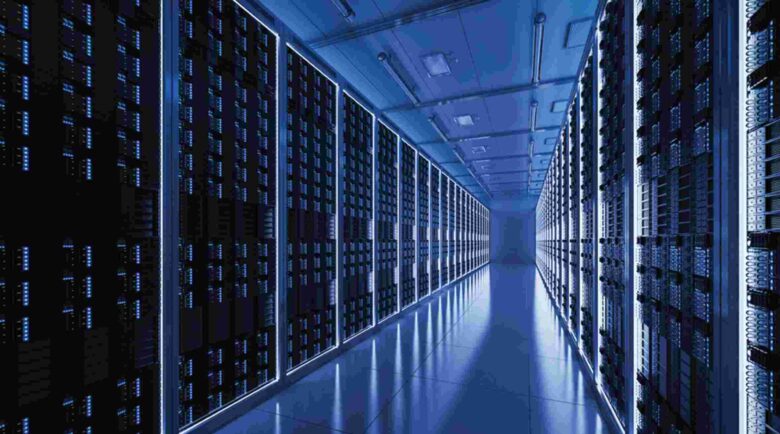As one of India’s leading business hubs, Mumbai houses many of these crucial facilities. However, the city’s hot and humid climate, along with its dense urban environment, presents unique challenges for data center efficiency. Here, we explore the top strategies to enhance the efficiency of data centers in Mumbai, focusing on cooling optimization, renewable energy integration, advanced automation, and more.
Optimizing Cooling Systems
Understanding Mumbai’s Climate Challenge
Mumbai’s tropical climate, characterized by high temperatures and humidity levels, poses significant challenges for maintaining efficient cooling systems in data centers. Excessive heat can lead to increased energy consumption as cooling systems work harder to maintain optimal temperatures.
Implementing Efficient Cooling Technologies
- Liquid Cooling: Unlike traditional air cooling, liquid cooling uses a liquid coolant to remove heat from servers, which is more effective in high-temperature environments. This method can drastically reduce the amount of energy required to cool data centers.
- Hot Aisle/Cold Aisle Containment: This strategy involves arranging server racks in alternating rows with cold air intakes facing one aisle and hot air exhausts facing another. By containing and isolating hot and cold air, this setup prevents hot air from mixing with cold air, thus improving cooling efficiency.
- Adiabatic Cooling: This method uses the principle of evaporative cooling to pre-cool air before it enters the data center, significantly reducing the load on traditional air conditioning units.
Enhancing Airflow Management
Proper airflow management is crucial for maximizing cooling efficiency. Using blanking panels to close unused rack spaces, sealing cable openings, and employing raised floor systems can improve airflow and reduce hotspots.
Integrating Renewable Energy Sources
Solar Power
Mumbai’s ample sunlight makes it an ideal candidate for solar energy. Installing solar panels on the rooftops of data centers can provide a significant portion of the energy needed, reducing reliance on non-renewable energy sources.
Wind Energy
Although less consistent than solar energy, wind energy can be a valuable supplemental power source. Offshore wind farms, in particular, can be an effective solution for data centers located near the coast.
Hybrid Energy Systems
Combining solar and wind energy with traditional power sources can create a hybrid system that ensures a steady and reliable energy supply. This approach not only enhances efficiency but also improves the sustainability of data center operations.
Leveraging Artificial Intelligence and Automation
Predictive Maintenance
Using AI to monitor and analyze data center equipment can predict when maintenance is needed before a failure occurs. This predictive maintenance reduces downtime and ensures that systems are operating at peak efficiency.
Energy Management Systems
AI-driven energy management systems can optimize power usage by automatically adjusting cooling, lighting, and computing resources based on real-time data and predictive analytics. These systems help minimize energy waste and improve overall efficiency.
Automated Workflow Management
Automation can streamline various data center operations, such as server provisioning, load balancing, and capacity planning. By reducing human intervention, these automated processes increase operational efficiency and reduce the risk of human error.
Implementing Advanced Data Center Design
Modular Data Centers
Modular data centers are composed of prefabricated modules that can be easily assembled on-site. This design allows for scalability, faster deployment, and improved energy efficiency compared to traditional data center construction methods.
Edge Data Centers
Edge computing involves processing data closer to the source of data generation rather than in a centralized data center. By deploying smaller, localized edge data centers, organizations can reduce latency, improve performance, and alleviate the load on central data centers, enhancing overall efficiency.
Focusing on Sustainability Practices
Green Building Certifications
Pursuing green building certifications, such as LEED (Leadership in Energy and Environmental Design), can guide data centers in implementing sustainable practices. These certifications provide a framework for designing and operating energy-efficient, environmentally friendly data centers.
Water Conservation
Implementing water-efficient cooling systems and recycling water used in data center operations can significantly reduce water consumption. Techniques like using rainwater for cooling purposes can also contribute to sustainability.
Waste Management
Proper e-waste management and recycling programs ensure that outdated or broken hardware is disposed of responsibly. This practice not only reduces environmental impact but also promotes resource efficiency.
Monitoring and Optimization
Real-Time Monitoring
Implementing real-time monitoring systems allows data centers to continuously track energy usage, temperature, humidity, and other critical parameters. This data provides valuable insights into operational performance and identifies areas for improvement.
Performance Metrics and KPIs
Establishing key performance indicators (KPIs) such as Power Usage Effectiveness (PUE), Data Center Infrastructure Efficiency (DCIE), and Carbon Usage Effectiveness (CUE) helps measure and track efficiency. Regularly reviewing these metrics ensures that data centers are meeting their efficiency goals and can guide future improvements.
Enhancing the efficiency of data centers in Mumbai involves a multifaceted approach that includes optimizing cooling systems, integrating renewable energy, leveraging AI and automation, and adopting sustainable practices. By implementing these strategies, data centers can not only reduce operational costs and energy consumption but also contribute to environmental sustainability. As Mumbai continues to grow as a technological hub, efficient and sustainable data centers will play a crucial role in supporting this development, ensuring reliable and eco-friendly digital infrastructure for the future.



